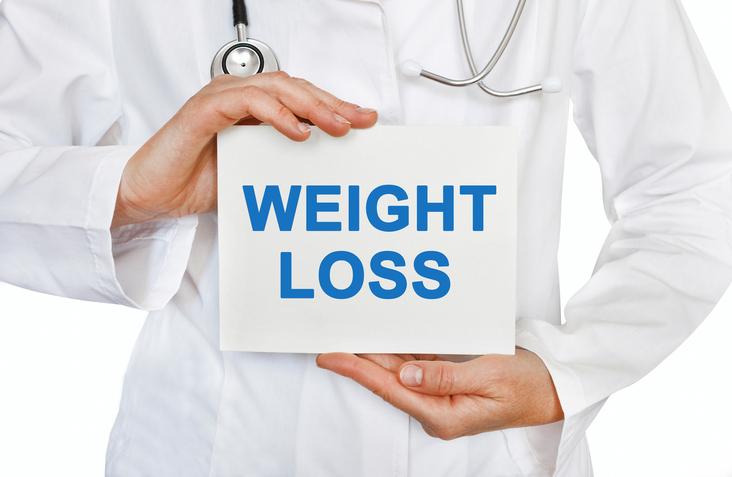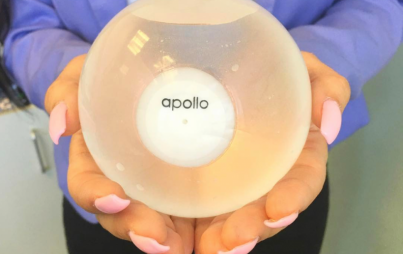
Doctors need to tell the whole truth about weight loss surgery's frightful side effects.
For fat people, Weight Loss Surgery is often touted as the magic bullet that will solve everything from sickness to single-ness to stigmatization. I’ve been told by doctors that I should have the surgery to cure my Type 2 Diabetes (which I do not have), my high blood pressure (which I do not have), my mobility problems (which I do not have), and just to make things easier “dating-wise” — which is not an issue since I’m in a long-term relationship with someone who loves me as I am, and not based on how my body could look after surgical manipulation.
Also, I’m a fat activist, so this whole discussion is a non-starter for me.
The thing is, this is all luck of the draw stuff and privilege. Health is not a barometer of worthiness, an obligation, or entirely within our control. I could just as easily have all of these health issues and be legitimately concerned about them. I could just as easily be single and feeling hopeless about a romantic future. I could just as easily not have become a fat activist, not have read the research, and so been willing to blame all of this on my fat, and likely believing my healthcare practitioner when she said that a near-complete stomach amputation would fix it all.
That happens all the time. I know because I hear from the people it happens to, and in many tragic cases, from their friends and family. In the past couple of weeks, I have heard from the friends or family of three different people — all with eerily similar stories:
They were a member of Size Acceptance community who had made the decision to have weight loss surgery. They didn’t care about being “skinny,” they just wanted to cure their Type 2 Diabetes, or fit on a roller coaster, or shop for clothes in stores instead of online, or get married. Their doctors told them that surgery would help all of that, so they had surgery.
That’s the inconvenient truth about weight loss surgery. Some people are happy with the outcome, some people have horrific lifelong side-effects, and some people die. And there’s no way to know which group someone is going to be in until they are in it.
Our acceptance of the idea that fat people should have their digestive systems mutilated and risk death for thinness brings a couple of things into sharp relief.
The first is just how horrific weight stigma is in our culture. I wonder if thin people can imagine being treated so poorly with such regularity — not just by bigoted people, but by a world that isn’t built to accommodate them (and blames them for that) — that they would be willing to have a healthy vital organ amputated in a way that will be, at best, life-altering and at worst, fatal. We need to wrap our heads around the fact that in our current society, weight-based stigma is so horrific that doctors recommend surgical intervention. Think about that for a minute — we’re not just giving bullies our lunch money anymore, we’re giving them our perfectly healthy stomachs.
The second thing is how comfortable we’ve become with fatphobia substituting for evidence-based medicine. When thin people go to the doctor, they get evidence-based care. When fat people go to the doctor, they get weight loss interventions —whether it’s diets, which have been shown to lead to weight gain far more often than weight loss, or pills that sometimes come with the possible side effect of death, or body size manipulation, with doctors insisting that weight loss isn’t just the key to health, but to happiness as well.
And that’s how the three people whose friends and family contacted me found themselves undergoing a surgery that would remove almost all of their stomachs. These three people had received their information about the possible risks and rewards of the surgery from the doctors and surgery centers which profit heavily from the procedures. Their doctors had promised them the lives they dreamed of, while simultaneously threatening them with (an incredibly unlikely) death before age 40.
The doctors trotted out surgery “success stories.” These three people never heard from anyone whose horrific life-long side effects made them regret the surgery on a daily basis. They never heard from the family and friends of the people who died from the surgery.
And now, all three of these people have died from complications from the surgery. Now, instead of riding a roller coaster with their mother, a woman's kids will grow up without her. Instead of shopping for clothes at the mall with her friends, they had to shop for black dresses for her funeral. And instead of having to manage Type 2 Diabetes (something that thin people also do), a woman left her life unfinished and her husband a widower.
And their family and friends contacted me to ask that I tell the truth about weight-loss surgery, so that their deaths won’t be in vain.
That’s the inconvenient truth about weight loss surgery. Some people are happy with the outcome, some people have horrific lifelong side-effects, and some people die. And there’s no way to know which group someone is going to be in until they are in it.
So what can we do? Of course, we are allowed to do whatever we want with our bodies, but here are some things I would suggest thinking about before surgery. If we’re considering surgery as a way to solve weight-based stigma, bullying, and oppression, we can consider instead joining the Fat Activism Movement and insist on dignity and equal treatment for people all sizes. This is particularly important considering the number of people who get the surgery and then regain all of their weight.
If we’re worried about health issues, we can consider a Health at Every Size approach which focuses on actual health-based interventions rather than body size manipulation.
Finally, if we’re contemplating this surgery, it’s important that we weigh the supposed benefits against the very real chance of death. We should ask our doctors/surgical centers to introduce us not only to “success stories,” but also to bring in people who regret the surgery, and the families and friends of people who died so that we can get a complete picture of the possible outcomes. We should remember that every single person who is happy with having had the surgery could just as easily have been a tragedy.
And we should remember that nobody knows whether we’ll be part of the tragic outcome groups until it’s too late. It’s a crapshoot. That’s the inescapable truth about weight loss surgery.






![[M]any doctors aren’t properly educated on matters of sexual health. Image: Thinkstock. [M]any doctors aren’t properly educated on matters of sexual health. Image: Thinkstock.](/sites/default/files/styles/profile/public/images/article/2019-02/ThinkstockPhotos-526355961.jpg?itok=qauD1qd9)